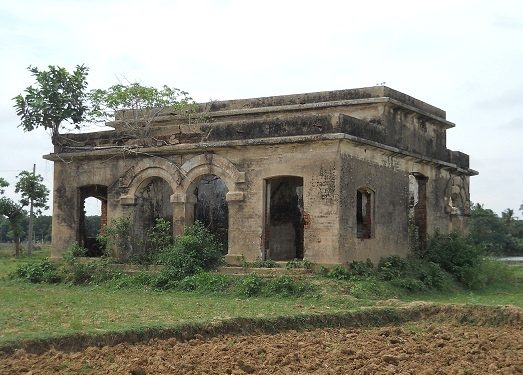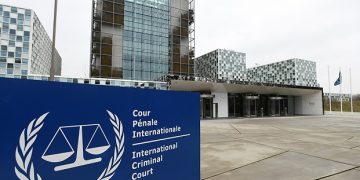Ersama: One would be forgiven for mistaking the abandoned and dilapidated building on the Alaka river bed here in Jagatsinghpur district for any other ordinary buildings. But it is not. It has been here since the British era and according to local people, it was the epicenter of freedom struggle in the locality.
This building was also the mute spectator to all sorts of inexplicable tortures the freedom fighters were made to undergo here.
It has seven rooms, a wide verandah and huge windows to facilitate ventilation. Lack of care and maintenance, however, has taken a catastrophic toll on the building. The roofs of two large rooms have already caved in. And if the roofs of the rest five rooms are still there it is because of the large wooden beams that support them. At places, plasters have come off the ten-inch walls, making the red bricks visible. The outer side of the walls has developed cracks at places owing to wild growth of plants. And the doors from the windows and main entrance have long disappeared.
This building was synonymous with the ‘Salt March’ movement in those days. It was used as the ‘dak bunglow’. Ex-headmaster of Sahada High School Basant Kumar Das says, “Goda, Janakadeipur and some other areas under this block were the main centre of salt production. It was when the British clamped restriction on salt production after declaring it illegal; there was a revolt everywhere. Opposing the restriction, Mahatma Gandhi launched ‘salt satyagrah’”.
Here too people joined in the satyagrah to break the salt harvest ban. In order to suppress the revolt here, the British came to the nondescript forested area of Ersama through water. They used to stay in this building constructed on the Alaka river bed and from here they used to draw plans on how to subdue the satyagrah. They not only baton charged the activists but also made them undergo the hoofs of their horses, he narrated.
At that time Das Malika of Narasinghpur was the village guard. Even he could not control himself and buried his uniform and joined the movement.
The British soldiers imprisoned Mana Samal and Balaram Biswal of Sahada, Juli Dei and Bilasi Dei of Gateswarpur and Madan Jena of Balarampur in this building. They were put to undergo all sorts of inhuman torture here. The building is a memoir of the freedom movement. Its walls are stained with the blood of the freedom fighters, he added.
This building and the role Ersama played in Freedom Movement have found mention in a book ‘Sangrami Smarane’, written by late Subhanarayan Swain, a senior lyricist in Akashvani. In the book, it has been mentioned that over 30 British soldiers used to stay in this building. As many as 10 to 15 horses used to be kept at the stable. The soldiers used to beat and drag anyone raising voice against the British rule up to the building on the river bed.
This building carries a lot of memories associated with the Salt March movement and Freedom Movement. It is about time the Culture Department took steps for its renovation else it might not stand the test of time, locals opined.







































